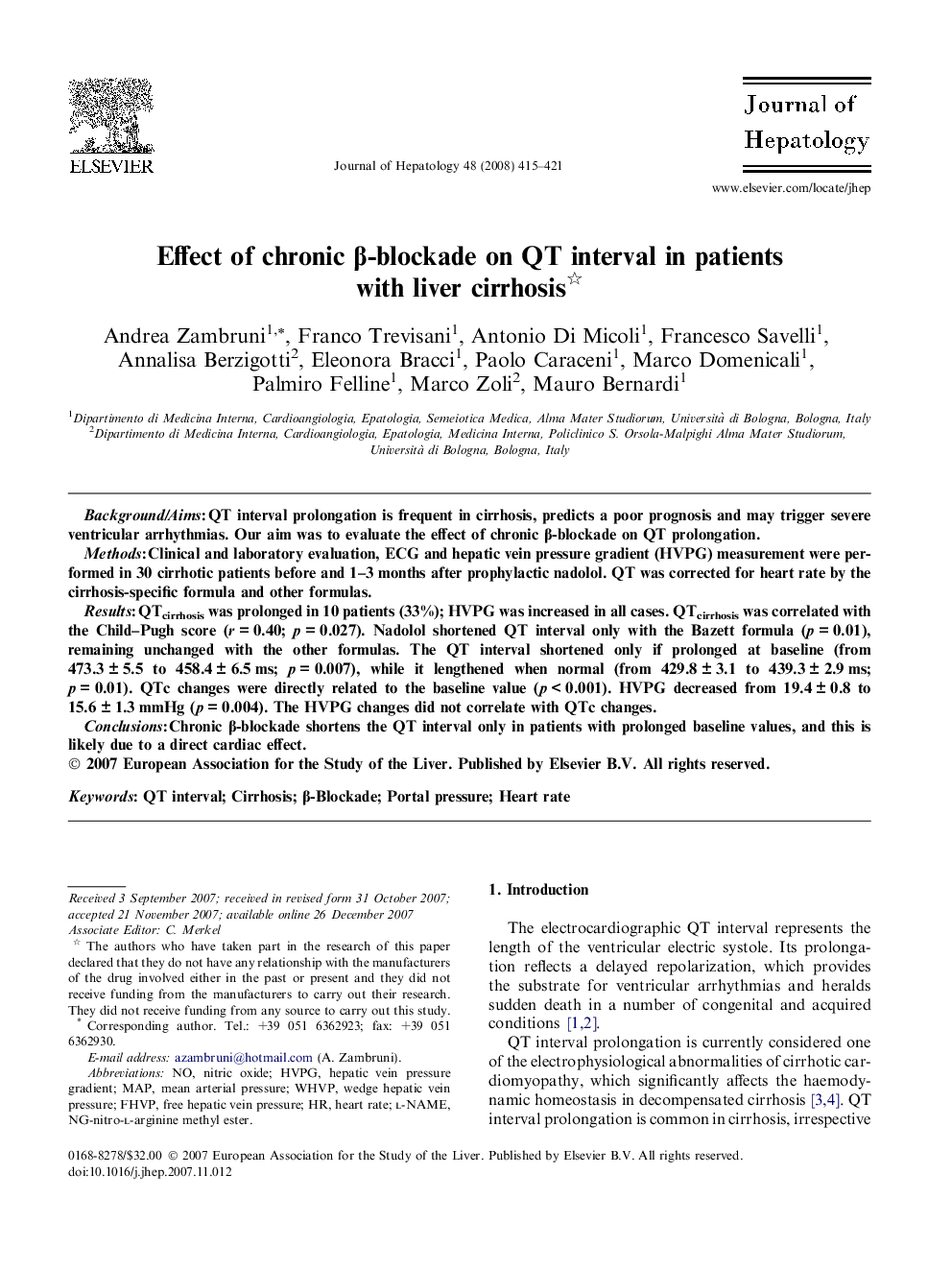| Article ID | Journal | Published Year | Pages | File Type |
|---|---|---|---|---|
| 3315205 | Journal of Hepatology | 2008 | 7 Pages |
Background/AimsQT interval prolongation is frequent in cirrhosis, predicts a poor prognosis and may trigger severe ventricular arrhythmias. Our aim was to evaluate the effect of chronic β-blockade on QT prolongation.MethodsClinical and laboratory evaluation, ECG and hepatic vein pressure gradient (HVPG) measurement were performed in 30 cirrhotic patients before and 1–3 months after prophylactic nadolol. QT was corrected for heart rate by the cirrhosis-specific formula and other formulas.ResultsQTcirrhosis was prolonged in 10 patients (33%); HVPG was increased in all cases. QTcirrhosis was correlated with the Child–Pugh score (r = 0.40; p = 0.027). Nadolol shortened QT interval only with the Bazett formula (p = 0.01), remaining unchanged with the other formulas. The QT interval shortened only if prolonged at baseline (from 473.3 ± 5.5 to 458.4 ± 6.5 ms; p = 0.007), while it lengthened when normal (from 429.8 ± 3.1 to 439.3 ± 2.9 ms; p = 0.01). QTc changes were directly related to the baseline value (p < 0.001). HVPG decreased from 19.4 ± 0.8 to 15.6 ± 1.3 mmHg (p = 0.004). The HVPG changes did not correlate with QTc changes.ConclusionsChronic β-blockade shortens the QT interval only in patients with prolonged baseline values, and this is likely due to a direct cardiac effect.
